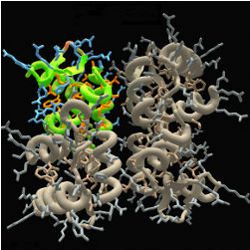Researchers are working to add smell, taste, and touch to the digital world, but significant challenges remain.
Samuel Greengard
Weathering a New Era of Big Data
Increased computing power combined with new and more advanced models are changing weather forecasting.
Facial recognition and expression analysis technologies are maturing, and they're changing the face of marketing, healthcare, security, and more.
How Computers Are Changing Biology
Sophisticated computer models and simulations are replacing test tubes and beakers. This revolution in biology research is redefining medicine, agriculture, and more.
Researchers are turning to computers, big data, and sophisticated algorithms to improve the odds of picking a winner.
Taking an Age-Old Approach to i
Web and app designers need to be mindful of the changing capabilities of aging users.
Expert witnesses in computing sciences navigate complex issues and sometimes-hostile lawyers in order to bring focus and resolution to high-profile legal disputes.
Computational Photography Comes Into Focus
Advances in computational photography are making image capture the starting point. The technology is transforming the field.
Electronic textiles and smart clothing promise to weave new, improved computing capabilities into the fabric of our lives.
Lensless cameras and other advances in digital imaging, computational optics, signal processing, and big data are transforming how we think about photography.
Shape the Future of Computing
ACM encourages its members to take a direct hand in shaping the future of the association. There are more ways than ever to get involved.
Get Involved







